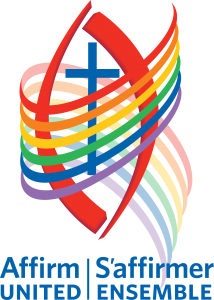Loraine MacKenzie Shepherd Canada Day July 1, 2018
Genesis 11:1-9; Acts 2:1-6
In the beginning, according to Genesis, was unity. In the Garden of Eden was one people, one language, one culture. This monoculture had power and began to play God. The line between human limitation and divine omnipotence was crossed. This creation story tries to explain the consequences of our thirst for ultimate power and knowledge.
It didn’t take long for this one people to become divided by political interest, familial gain, and the spread of diverse languages. Our Creation story then introduces a flood where the people started over again and once more became one. And once more, their monoculture assumed ultimate power and authority in our story of the Tower of Babel.
Babel literally means, in Hebrew, the gate of God. It also refers to Babylon, which was a strong, united empire in that time. The Babylonians had a practice of building towers called zigguarts within their temples. Some of these towers had 7 terraces, representing the 7 planetary deities who were mediators between heaven and earth. When people climbed the towers, they progressed through the stages of the mediators and when they reached the top, they reached heaven—they entered into the realm of the gods.
When Genesis tells us that the people of Babel built a tower with its top in the heavens, it was most likely referring to the zigguarts, implying that the people were becoming so powerful in their united language and culture that they were becoming like gods. Their empire was omnipotent and we all know what happens when empires claim ultimate authority and place themselves beyond critique.
And so, our story tells us that God confused the language of Babel, so that Babel, the gate to God, became balel, the Hebrew word for confusion. Some of these word plays are continued in the etymology of our English language. Another way to pronounce the Hebrew name Babel is Bafel—the people were baffled by the confusion of language so that what they heard in the town of Babel was simply babble to their ears.
This story has traditionally been understood as God’s curse of diversity and division placed on humanity. But diversity may be more gift than we realize. Sometimes challenges and defeat help to remind us of our human limitations and our need to accept critique. As well, we in Canada have realized that multiple cultures working together are far superior to a monoculture monopoly.
The United Church of Canada has often reflected the Dominion of Canada. I spent a year of research in the United Church archives where I read through United Church minutes and articles from 1925 to today.[1] I was tracking policies and positions, one of which was United Church Home Missions. I wondered how we could have made such damaging decisions with the residential schools. Most missionaries, teachers and school administrators were good people, with kind and generous hearts. But as I read through the mission policies, it became clearer to me why we did what we did.
In the beginning, we believed that, in order to best help anyone succeed in what had become the dominant British and French cultures of Canada, we had to help them assimilate. This meant to throw out anything that hindered their assimilation, including language, culture, dress, and religion. Most Indigenous workers, even in their kindness, had no choice but to follow a tough love philosophy of weaning children from their culture. They believed that in the long run, this would be the best for them.
It wasn’t until the 1950s that the United Church realized that this practice of assimilation was actually causing more harm than good, especially with Indigenous people. And so, the policies officially changed then from a goal of assimilation to a goal of integration. The intent was still the same—to integrate everyone into the dominant culture—but the United Church realized that we also had to learn about and respect the minority and Indigenous cultures of this land. But even then, there was an assumption that they needed to become like us.
In 1971, Canada adopted a multicultural policy and this inspired the United Church to move from a policy of integration to pluralism. The United Church, along with our country, realized that success could better happen if people were allowed to fully celebrate and remain part of their own minority cultures. They did not have to become like the dominant culture.
But then, a different problem began to emerge with multicultural pluralism. Groups remained isolated within their own cultures, and some practices that oppressed their own women or minorities, such as the LGBT community, could not be critiqued. As well, the English and French dominant cultures did not have to listen to the others.
And so, once again the United Church changed its policy in 2006 from multicultural pluralism to interculturalism. We are now officially an intercultural church. This means two things. The first is that we need to continue respecting the diverse cultures of our country and of those who are within our churches. The second is that each cultural group can no longer be isolated and unaffected by the others. Each one of our cultural groups, including the dominant cultures of English and French, have much to learn from one another. Interculturalism means that we are open to being transformed through interactions and partnerships. We need one another.
The United Church is declining in numbers of churches and of people. Those of us from the dominant cultures realize that we need to welcome people from other cultures if we are going to survive. I was at a gathering the other day where the Korean ministers were joking that they had come to save the United Church. They might be right! If we’re going to welcome people from other cultures, we might have to change a thing or two in order to be open to others and their ways of doing things. We not only need one another, but also must be open to being transformed by the other.
The story of the Tower of Babel teaches us that diversity is not a curse from God, even though diversity often causes confusion. When we, as a country and as a church, are united in our diversity, we are stronger and more resilient than ever. I have some friends from Kosovo who left their country because of ethnic fight. They told us that they moved to Canada because of its international reputation for intercultural peace. But to keep us humble, our intercultural partnerships will continually remind us of our limitations and of our need for critique from one another. This will keep us from trying to play God by crossing into absolute authority and omnipotence.
These incultural partnerships will also remind us of our treaty covenants with one another on this amazing land of ours. As Walter Farquharson wrote in our opening hymn, this land is “ours, but on lease.” We are but tenants of the land and village of Kanata, as the Iroquois word for Canada means, living in what the Cree call Manitou-wapow (Manitoba), the place where the Creator rests.
[1] This included United Church of Canada Year Books, Records of Proceeding and the Observer.


